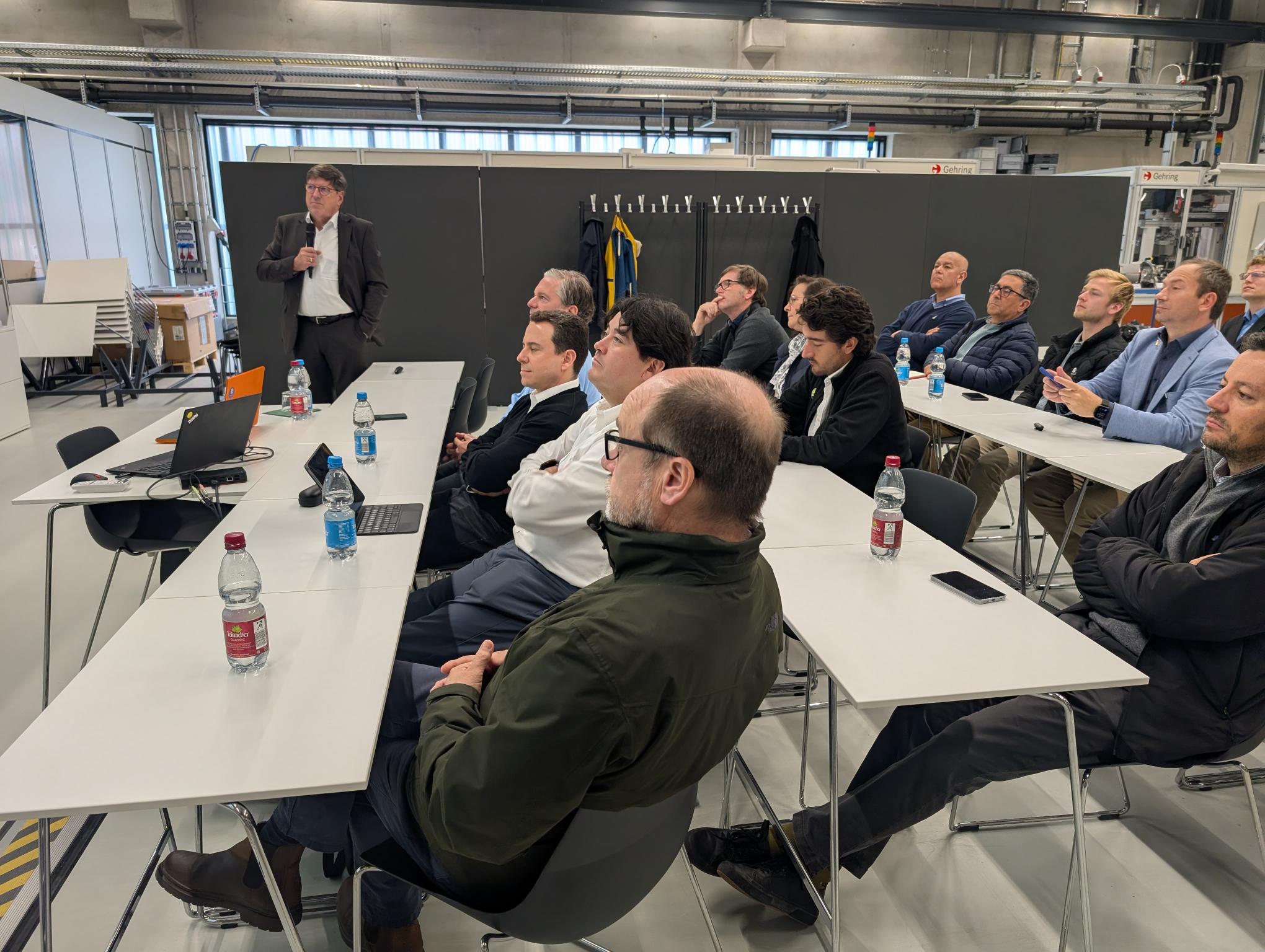The German-Chilean Chamber of Commerce (AHK Chile)

The event was part of the Technology Mission to Germany, titled "Inside Germany’s Innovation Scene," which took place from October 13 to 17. Karlsruhe was one of the key cities visited. The event is also part of the established network, The Cluster KIT - Chile, that primarily focuses on sustainable development, energy, and regional studies.
The event was organised in cooperation between the International Cooperation and Projects unit at KIT (ICoP), and by Thilo Schaller (Project Leader Innovation, AHK Chile) and Alan García (Executive Director, SOFOFA Hub). The delegation comprised 11 participants from major Chilean companies across strategic industries, including:
- Mining/Chemicals: SQM Iodine & Vegetal Nutrition (SQM IVN).
- Energy: COLBÚN (Chilean electricity sector).
- Engineering/Construction: EMIN.
- Maintenance/Technology: SIMPLEX TECNOLOGÍA Y SERVICIOS SpA.
- Food/Agriculture: AGROSUPER.
- Forestry: ARAUCO / BIOFOREST.
- Furniture Components: HBT.
The delegation's areas of interest were Industrial Productivity, Digital Transformation, and Advanced / Sustainable Materials. Other specific interests included Predictive Maintenance, Waste Management, Water Efficiency, and Quality Control.
The focus of the visit was the WBK Institute of Production Science and the Karlsruhe Research Factory, whose mandate is research for the Production and Mobility of the Future.
The research portfolio presented aligns directly with industry interests:
- Electric Mobility: Research covers the entire vehicle system, including manufacturing optimised gear components and developing hybrid lightweight concepts. Specialised work focuses on fuel cell and electrolyser systems, battery cell technology (including agile production solutions), and electric drives (process development and intelligent assembly strategies).
- Production Informed AI: This area aims to create efficient and scalable value creation by combining AI with production domain knowledge. Key topics involve establishing a digital foundation (Sensorisation, Data Infrastructure, Digital Shadow), various analytics (Anomaly Detection, Process Monitoring), and Production Modelling (e.g., Predictive Maintenance, Digital Twin).
- Sustainable Production: The objective is to increase resource efficiency in manufacturing processes and equipment. It also involves developing circular approaches related to remanufacturing and the circular economy, including modular systems for disassembly and autonomous production control.
- Additive Manufacturing (AM): Research seeks to advance AM processes (such as Powder Bed Fusion and Binder Jetting) for the production of functionally integrated components, using digitisation and Artificial Intelligence for process optimisation and quality assurance.
The event also highlighted KIT´s role in fostering innovation through the KIT-Gründerschmiede (start-up incubator) and the NXTGN Startup Factory, a deep tech incubator/accelerator. In 2024 alone, KIT supported the founding of 43 start-ups and 18 spin-offs.
